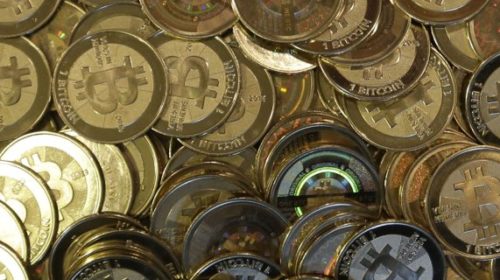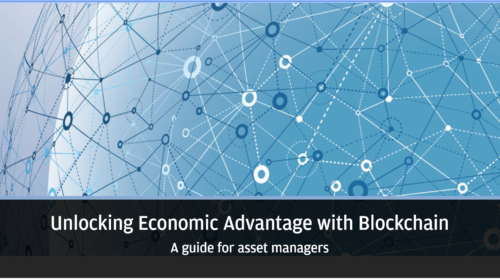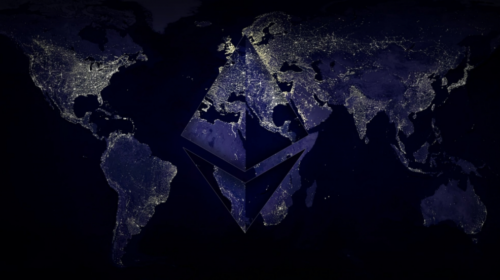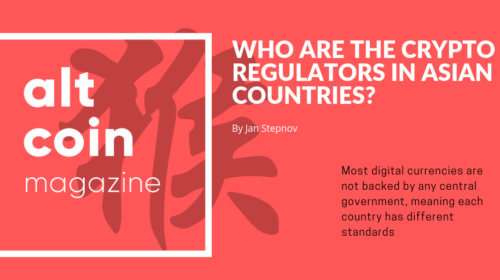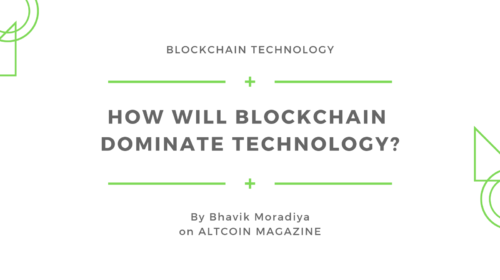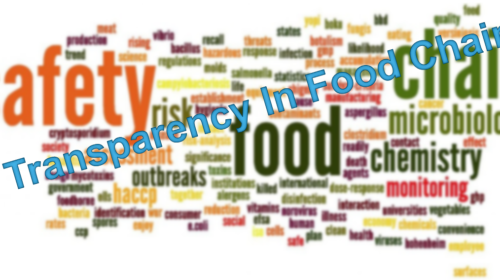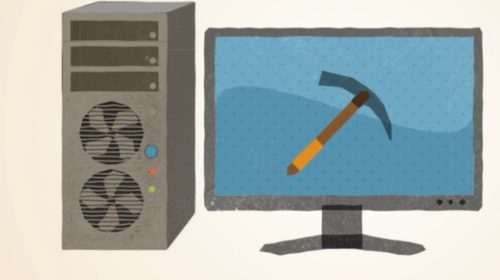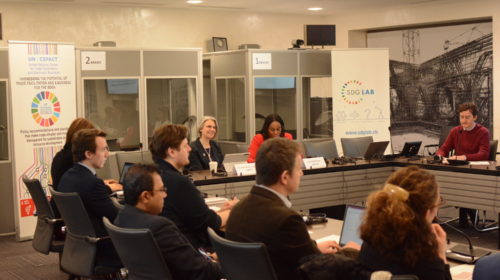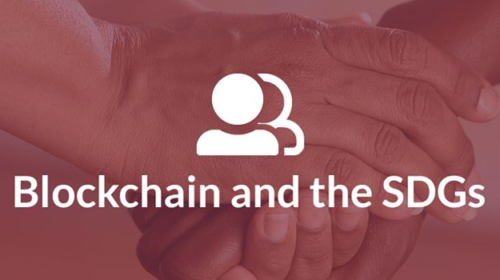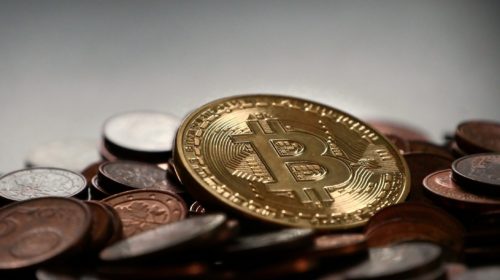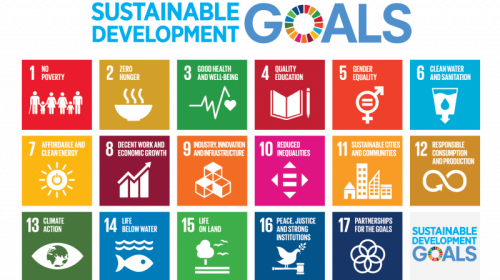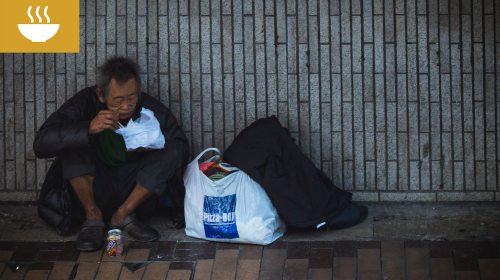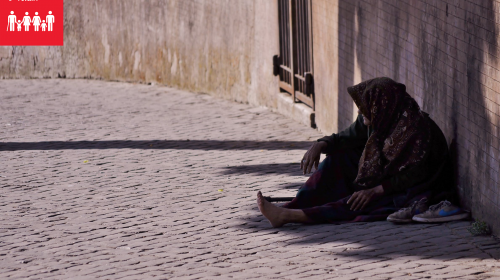Bitcoins have rapidly gained popularity, but what is the currency’s legal status? This week Germany revealed that it sees the virtual payment method as “private money,” but its tax status remains unclear. The value of bitcoins has become widely accepted. The virtual, Internet-based currency can currently be traded in for about $120 each, according to Mt. Gox, a popular bitcoin exchange. But now they are also gaining a legal footing — at least in Germany, where the Finance Ministry has declared bitcoins to be a “unit of account.” The designation…
Tag: Blockchain
Unlocking Economic Advantage with Blockchain – A guide for asset managers
Credits: Published by J.P. Morgan There is a growing realization that distributed ledger technology — popularly known as blockchain — will bring a radical shift in the way we think about financial assets and the way the financial industry will operate in the future. The blockchain journey is likely to be long and the outcome is uncertain, but a consensus is forming that it is the real deal. Disregarding it is a risk. In this joint report with management consultant Oliver Wyman, we argue that asset managers need to get…
Ethereum Development Crash Course Part Two:
Part Two: In part two we will cover some more fundamental aspects of the Ethereum blockchain such as wallets, transactions and gas. While giving you a brief overview of the similarities and differences of centralised applications vs decentralised applications, and what kind of development environment should be used along with some key tools for smart contract and decentralised application development. If you have just joined the series please see part one to start from the begininng https://medium.com/bitfwd/ethereum-development-crash-course-part-one-327dee16878b More Ethereum 🐰🕳 Article one covered some of the main key points behind Ethereum’s…
Ethereum Development Crash Course Part One:
Part One: In Part One of this series, we will cover the basic fundamental knowledge of Ethereum, what is it, how does it work, what are the primitives of Ethereum and its structure. What is Ethereum 🌎 Ethereum is an open source distributed ledger that was originally proposed in late 2013 and then released to the public in 2015 by a Canadian called Vitalik Buterin. He was originally born in Russia and then he migrated as a child to North America. With an IQ of 150+ and a strong technical mind,…
Who are the Crypto Regulators in Asian Countries?
By Jan Stepnov on ALTCOIN MAGAZINE Jan Stepnov Apr 8 As demand for cryptocurrency grows, global regulators are divided on how to keep up. Most digital currencies are not backed by any central government, meaning each country has different standards. Every seemingly small regulation announcement has driven the price of bitcoin and other cryptocurrencies in 2018. Most countries have more than one government body monitoring and regulating different aspects of crypto activities. Among the Asian countries, India is the only one with no legal mandate to directly regulate crypto assets. India Three regulators — the Reserve Bank…
How Will Blockchain Dominate Technology?
How Will Blockchain Dominate Technology? By Bhavik Moradiya on ALTCOIN MAGAZINE Bhavik Moradiya Sep 30, 2018 Blockchains, or digitized and decentralized lists of records, generally of financial transactions or other, similar data, have been growing in popularity in recent years. The trend has taken off to the extent that it has attracted the attention of many tech-organizations, most of which are investing time and funds into carrying out more research on blockchains. However, for most of us, the concept of blockchains seems a relatively uninteresting idea that talks about the future of the internet…
BlockChain: Bringing Trust Into Our Food Supply Chain
Food industry is changing fast. During my school days in a tier-2 city of India I used to eagerly await summers, not just for the summer holidays but also because two of my favorite fruits i.e. Mangoes and Watermelon were available only during those 2 months. My 7-year son doesn’t know what seasonality of fruits is, because practically everything is available every time today. While we have made great strides in making food available at all places and all times- thanks to global trade and cold chains- we are still…
Blockchain and Its Application for Agri Policy Makers – 5 Innovative Use Cases..
Blockchain has been gaining momentum and innovative companies across the globe are coming up with various applications for it. Nearly $4bn was poured in by venture funds into Blockchain startups in 2018. Can this technology really have application for the Agriculture public policy makers ? In the last few weeks, I have had opportunity to meet and discuss with policy makers in South East Asian countries on various applications of Blockchain relevant for them. Here are some of their most pressing use cases: Food Traceability- Food safety is a big…
Blockchain research to support Sustainable Development Goals
UNDP is partnering with Blockchain, the world’s leading software platform for digital assets, the UN Refugee Agency (UNHCR) and the World Economic Forum (WEF) to explore the use of block chain technology for development. In a pioneering white paper titled “The Future is Decentralised”, Blockchain and UNDP offer potential solutions to a wide range of issues, including the conservation of natural resources, economic growth, and financial inclusion and security, for the benefit of our common humanity. The Future is Decentralised provides a first step in helping policy makers, regulators, and…
UNECE and SDG Lab facilitate UN inter-agency exchange on blockchain for the SDGs
APRIL 3, 2019 Blockchain, a form of Distributed Ledger Technology, is providing new frontiers of innovation for sustainable development through decentralized authentication processes secured by cryptography. Blockchain technologies have developed rapidly over the last few years and have the potential to transform fundamental mechanisms that define the economy. Many UN agencies have seen the potential of this technology and are exploring how it can help achieve different outcomes to support implementation of the 2030 Agenda. It is therefore opportune for inter-agency actors in this space to connect and engage together,…
How to Run a Blockchain on a Deserted Island with Pen and Paper
Tal Kol May 10, 2018 If you’re ever stranded on a deserted island, knowing how to run the process of decentralized consensus — or in other words, operate a very simple blockchain by hand — can prove to be very useful. All you need is some fellow survivors, this post, a pen and a few pieces of paper. If you’re not certain this skill is useful for your survival, be sure to read my last post on how blockchain can vastly improve island life. Let’s go back to that…
Blockchain and the Sustainable Development Goals
By: Laura Marissa Cullell Marketing & Operations Officer Can technology progress human rights? Provide humanitarian aid? Help combat Climate Change? Address issues of identity, trafficking, and provide access to food? The answer to these questions is yes. And Blockchain is a fantastic space to explore these issues right now. In the last article of our series on Unique and Interesting Use Cases for Blockchain, I explore some of the applications of blockchain to achieve the UN Sustainable Development Goals. Part I explored just some of the use cases of this…
Riding the blockchain tide to wipe out uneasiness on the planet
Earlier on, tech revolution was around product development. It took a while, but then it was followed by Open Sourcing of technology – making it accessible to all. Likewise, came in Cryptocurrency – attempting to design a currency for fair and free trade – unbound by the mechanics of taxation, handling charges and federal policies. Backed by Blockchain, it made significant inroads on to the global markets and choreographed some seismic shifts in the way transactions were executed and currency exchanged hands. While the merits and the demerits of such…
Blockchain Use Cases for the Sustainable Development Goals
Can Blockchain Help Feed the Hungry?
Is Blockchain Technology the Answer to Ending Poverty?
Blockchain Could Help Achieve The UN’s Sustainable Development Plan
Post by: Irfan Jafrey In September 2015, the 193 member countries of the United Nations adopted a developmental agenda to end poverty, protect the planet, pursue peace and ensure prosperity and well-being for all. This agenda was called the Sustainable Development Goals (SDGs). The 17 SDGs were built on three core elements: economic growth, social inclusion and environmental protection. These all aim to bring nations together to support one cause — a sustainable future for generations to come. With this, each goal is interconnected in that the success of one…


